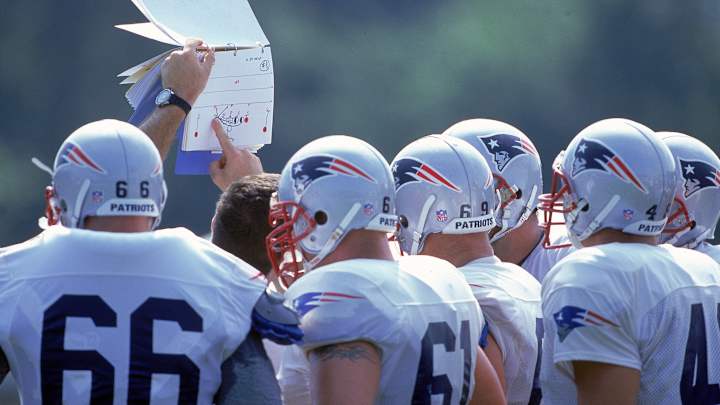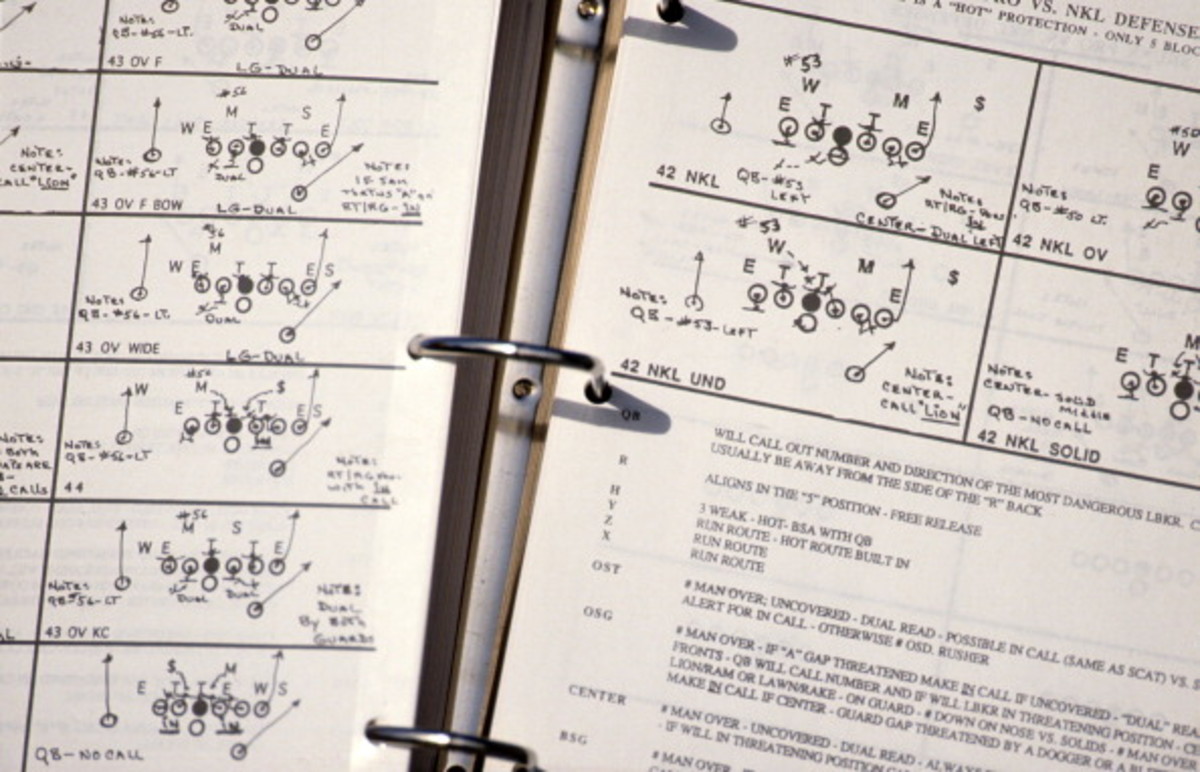Stupid Bowl Sunday: How televising NFL games dumbs them down

Entertainment, in any format, is an abstraction. Call of Duty pastes a globe-trotting, gun-toting theme onto what is essentially a series of reflex challenges. The best we can do to simulate a sword piercing an orc’s skull is a 20-sided dice or the X button. Entire lifetimes are compressed into 120 minutes at movie theaters across the country every day, and there’s plenty of theater that mostly serves as a loose conduit to pack in as many songs, dances, and jokes as possible.
Generally, this is the argument you’d make for the continued relevance of sports. In an era where someone’s life’s work is ready to stream 24/7 through multiple platforms, sports serve as the only genuine live drama left. When you watch a football game, you have a belief that you’re not watching a mere representation of real life. There is no X button, there are no concessions - you’re left with the raw force of talent, strategy, and pure athleticism that can only be earned through years and years of dedication. It’s an ideal really, that what we’re taking in when we watch sports is thorough, undiluted, Real Life.

Except, that isn’t true. It’s not. The television sports industry is just as abstracted as any other form of entertainment. There’s no avoiding it. It’s the only way we, the proletariat masses, can ever digest something as excessively Byzantine as the modern game of American Football. If we’re being completely honest, 95 percent of the viewing public has absolutely no idea what they’re watching when safety help comes from over the top, or the difference between a draw play and a trap play. We never see the coverage and route-running downfield, we never see the dynamics of an offensive or defensive line, we certainly don’t know what makes a blitz work. We’re talking about a sport that takes week-long practice sessions, where wide receivers are expected to make hot reads on the fly and entire defensive schemes are based on metagame bluffing. Somehow, the NFL successfully boiled down an incredibly complex sport into a simple, mass-market formula. Running plays and passing plays. Positive yards, and negative yards. Get past the yellow line. Against all odds, football is fun for the whole family.

This isn’t necessarily a bad thing, and certainly not unique to football. The average basketball fan isn’t able to identify the specifics of bad defense, and you can go to hundreds of baseball games without ever learning how to identify pitches. But football is by far the most extreme example of simplification. We’re talking about one of the richest, most consumer-friendly sports in the world, a sport I have watched my entire life, and I didn’t really know what a Cover 2 was until a couple weeks ago. This is partly my own ignorance, but the NFL certainly hasn’t made an attempt to educate the public, mostly because that would be a monumental task. Instead, we get a standard camera angle that blocks out about 80 percent of the game. The NFL tells us never to worry about zone schemes or receiver matchups or blocking audibles, just wait until the ball is caught or bounces limply to the ground. We’ll show you that, and that’s all you need.

It’s an understandable position. Overloading your audience with the true, relentless complexity of their favorite sport might do more harm than good. We’re blissfully ignorant in our daffy world of beer specials and big plays, and that’s good for the bottom line. And personally? It’s a little more fun to conflate myself with mysticisms like “we just played harder” than “man our linebackers had no idea how to cover the read-option.” The NFL is in the entertainment business, and they’ve very little to gain by elevating the general football IQ of society.

But at the same time, isn’t it a little bit strange how we’re watching a version of football that’s been reduced to its basic, pre-school elements? You watch your favorite quarterback play every week of the season, and you wouldn’t have a single relevant question to ask him about the sport you ostensibly both love! It’s a clear intellectual divide, which almost puts football in this weird sports-entertainment category. When you celebrate a touchdown that took strategic intricacies so far beyond your conception that you didn’t even notice, how different is that from rooting for John Cena?

It’s something that contradicts our core ideals when it comes to watching sports. We like to think that we’re processing all the emotion and hypothetical momentum swings on the fly, but that’s not true. The NFL obviously lets us believe that what we’re watching is a fundamental representation of reality, because it helps the product look more legitimate. Our understanding is kept bound in a cozy restraint, because the NFL thinks that truly comprehending its sport might be too much for our feeble little minds. Are they right? That’s up for debate, but it certainly shouldn’t be surprising that one of America’s biggest companies is banking their business model on consumer stupidity.
Follow Extra Mustard and Luke Winkie on Twitter
